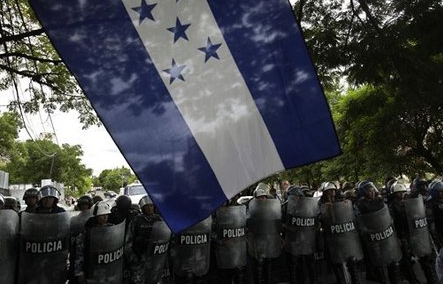
Honduras’s police force are sitting on more than 13,000 outstanding arrest warrants issued over the last six years, highlighting the beleaguered department’s struggle to address soaring crime rates.
Honduran police have acted on less than half of the arrest warrants issued since 2007, according to a report by La Tribuna newspaper, with few signs of improvement; 2011 was the police force’s worst year yet, with 54 percent of 4,509 warrants still pending.
Most of the unexecuted arrest warrants are concentrated in major Honduran cities with high crime levels, like San Pedro Sula, Tegucigalpa, La Ceiba and Choluteca, suggesting that police in those areas have been overwhelmed by violence. Of the thousands of charges they’ve let slip, most have been for major offenses like murder, drug trafficking, illegal arms possession, and police corruption, according to a spokesman for the Security Ministry.
InSight Crime Analysis
Even if police were to make more arrests, there’s no guarantee the judicial system could process the extra cases, or that the jails could handle the burden. The Honduran prison system is already well above its 8,280-person capacity, with some 12,500 inmates, according to estimates from prison authority the National Direction of Special Preventive Service (DNSEP).
Honduras has attempted to improve the police force’s performance by creating new bodies to investigate corruption within the department and an elite organized crime-fighting unit called “the Tigers.” In November, the government issued an emergency decree allowing the military to take on police powers, including the ability to make arrests and perform searches.
The attempted reforms come amidst accusations of corruption and human rights abuses within the police department itself. Earlier this month, the US government announced that a portion of its $56 million in security aid could not be handled by the country’s top police chief Juan Carlos Bonilla, or any of his subordinates, until he had been investigated for alleged human rights crimes committed in the early 2000s.
This latest report on the staggering number of outstanding warrants will likely further damage the public trust in the police — some 72 percent reportedly don’t feel safe with the force — and has helped contribute to Honduras’ high impunity rates, Itsmania Pineda Platero, a government human rights prosecutor, told La Tribuna.
Source: Insight Crime



